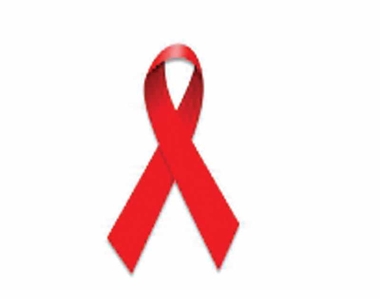It’s 2017 and people continue to be infected

by Mary Turner
HIV/AIDS Columnist
I can’t believe I’m writing for 2017! Where does time go? It seems like only yesterday that I was a fresh-faced naïve college girl becoming acquainted with students who were openly members of the LGBTQ community.
Back then, it wasn’t polite to speak about things that were contrary to the beliefs of the mainstream community. Even though the civil unrest of the 1960’s and 1970’s had forever gashed holes in our social fabric exposing awful, ugly treatment of many segments of society, the status quo worked hard to remain the status quo.
When HIV infections hit the airwaves, it was easy for many to shake their heads and reassure themselves that this must be God’s punishment for sinful sex. Four decades later, despite medical science’s attempt to explain that AIDS is caused by a virus (HIV) just as colds and the flu are, and that it isn’t just sex that puts us at risk. Those same people and others like them cling to that discredited belief.
HIV isn’t talked about the way it did back then. I guess the novelty has worn off.
However, people continue to be infected with the virus and people continue to die of complications from AIDS. I don’t know if the hard-won freedoms that historically oppressed populations have gained will stand the test of time as the new administration comes into power.
But I do know that people are still so afraid of an HIV diagnosis that they resist getting tested and starting treatments that can help them live a long, quality life. They don’t want the stigma and potential rejection, and they don’t know how they will cope with living HIV+.
Regardless of your sexual orientation, occupation, or station in life, know that knowledge is power. As difficult as it might be, swallow your fear and get tested. If you are HIV+, immediately seek medical care from a doctor who is an HIV specialist.
If you Google “HIV specialist”, you will find several listings in the larger metropolitan areas. Once you have connected with a doctor and begun treatment, take your medicine as prescribed and stick with your plan. If you are prone to forget to take your medications on time, ask a friend, spouse, partner or social worker to help you stay on track.
Then, become a partner in your care with your doctor. Talk candidly with them about any concerns you may have. Medicine is expensive, especially for those without insurance. Don’t be too proud to tell your doctor that you can’t afford the treatment plan that they prescribed for you. There may be alternative therapies that cost less or programs to help offset the cost of your medicine.
Additionally, discuss any symptoms you may be having or any side effects from your treatment. Before taking any over-the-counter medicine or dietary supplements, discuss the potential impact they will have on your therapy. Something as innocent as certain kinds of fruit juices or a supplement to help you sleep can alter the way a prescription drug works.
Take care of your oral health by seeing a dentist regularly. Your mouth is a veritable heaven (stay focused with me, please) for bacteria who not only breed there with abandon, but who look for every opportunity to enter your bloodstream and invade other organs. A healthy mouth helps insure a healthier body.
Lastly, keep in mind that even the recreational use of alcohol and drugs can directly interfere with your treatment plan and lower your ability to adhere to a regimen.
A new year brings us hope, and hope fuels our desire to live long and happy lives. For 2017, I wish you peace, love and health. Happy New Year!
Copyright 2017 The Gayly – January 12, 2016 @ 4:50 p.m.





